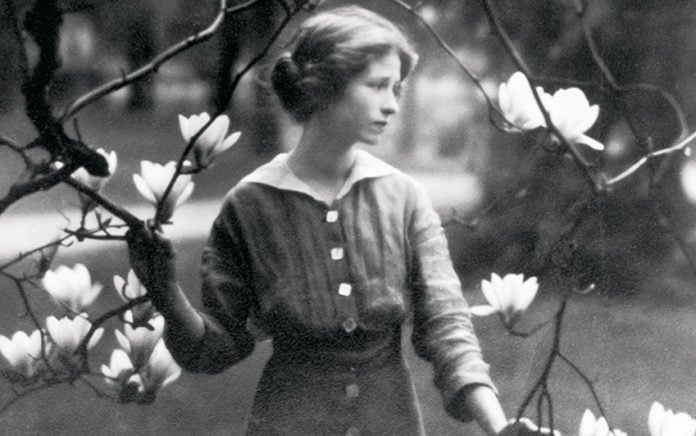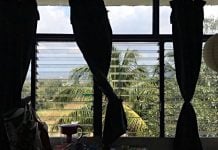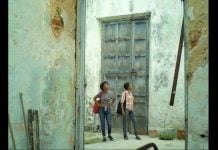Edna St. Vincent Millay (1892-1950) fue una de las más exitosas y respetadas poetas norteamericanas, ganadora del Premio Pulitzer. Usó el seudónimo de Nancy Boyd para su trabajo en prosa. Además son reconocidas sus obras de teatro, entre ellas Aria da Capo o The Lamp and the Bell, y escribió también el libreto para una ópera, The King’s Henchman. Nacida en Rockland, tuvo un talento precoz para la literatura gracias al profundo interés de su madre en los clásicos, como William Shakespeare o John Milton. En 1923 gana el Premio Pulitzer de Poesía por The Ballad of the Harp-Weaver, siendo la tercera mujer en ganarlo, pero la primera en hacerlo sin seudónimo. Como Robert Frost, St. Vincent Millay fue una de las más hábiles escritoras de sonetos del siglo XX, y del mismo modo que Frost, supo combinar las actitudes modernistas con las formas tradicionales, creando una forma única dentro de la poesía norteamericana. Su libro Euclid Alone has Looked on Beauty Bare es un hermoso homenaje a la geometría de Euclides. Otros de sus libros de poesía son The Little Ghost, First Fig o Renascence. El volumen Mine the Harvest fue publicado en 1954, cuatro años después de su muerte, debido a un ataque cardiaco en 1950.
Primavera
¿Con qué propósito, Abril, vuelves otra vez?
La belleza no basta.
Ya no puedes calmarme con el enrojecimiento
de las pequeñas hojas que se abren pegajosas.
Sé lo que sé.
El sol calienta mi cuello mientras observo
las espigas del azafrán.
El olor de la tierra es bueno.
Es evidente que no hay muerte.
¿Pero qué significa eso?
No sólo bajo tierra los cerebros de los hombres
son comidos por los gusanos.
La vida en sí
es nada.
Una taza vacía, un tramo de escaleras sin alfombra.
No es suficiente que cada año, por esta colina,
Abril
llegue como un idiota, balbuceando y esparciendo flores.
Lamento
Escuchen, niños:
vuestro padre ha muerto.
De sus sacos raídos
les haré chaqueticas;
les haré pantaloncitos
de sus viejos pantalones.
Habrá en sus bolsillos
cosas que solía poner allí,
llaves y centavos
cubiertos de tabaco;
Dan tendrá los centavos
para ahorrar en su alcancía;
Anne tendrá las llaves
para hacer un bello sonido.
La vida debe continuar,
y la muerte ser olvidada;
la vida debe continuar,
aunque los hombres buenos mueran;
Anne, come tu desayuno;
Dan, toma tu medicina;
la vida debe continuar;
aunque olvidé por qué.
Yo, nacida mujer y angustiada
Yo, nacida mujer y angustiada
por todas las necesidades y nociones de mi género,
me urge por tu proximidad hallar
tu justa persona, y sentir cierto entusiasmo
por llevar el peso de tu cuerpo en mí pecho:
tan sutilmente está diseñado el humo de la vida,
para aclarar el pulso y nublar la mente,
y dejarme otra vez deshecha, poseída.
Sin embargo, no pienses en esto, la pobre traición
de mi sólida sangre contra mi mente asombrada,
te recordará con amor, o salpicaré
mi desprecio con piedad, –déjame aclararlo:
encuentro este frenesí razón insuficiente
para conversar cuando volvamos a vernos.
Qué labios mis labios han besado, y dónde y por qué
Qué labios mis labios han besado, y dónde y por qué,
lo he olvidado, y bajo qué brazos ha reposado
mi cabeza hasta la mañana; pero la lluvia
está llena de fantasmas esta noche, que golpean y suspiran
sobre el vidrio y escuchan la réplica,
y en mi corazón se agita un dolor silencioso
por los muchachos olvidados que no volverán
a mirarme a medianoche con un grito.
Así en invierno se levanta el árbol solitario,
sin saber qué pájaros se han ido uno a uno,
pero sabe que sus ramas están más calladas que antes:
no puedo decir qué amores han ido y venido,
sólo sé que el verano cantó en mí por un momento
y que no ha cantado nunca más.
Noche en Lesbos
Dos veces he visto sus adorables cabezas
peladas, una junto a otra, el ónix y el oro,
sé que he tenido lo que no supe sostener.
Dos veces entré en la habitación, sin saber que ella estaba.
Dos ojos de ágata, dos ojos de malaquita,
dos veces se volvieron hacia mí, duros y brillantes.
Por lo que conozco mi pérdida.
¡Oh, irreparable,
dulce incienso, que montas en la noche sin viento!
Objetor de conciencia
Moriré, pero eso es todo lo que haré por la Muerte.
Lo escucho sacar su caballo del establo; escucho el ruido sobre el suelo.
Tiene prisas; tiene negocios en Cuba, en los Balcanes, muchas llamadas que hacer esta mañana.
Pero no sostendré la brida mientras él aprieta la cincha.
Y él podrá montar solo: no le ayudaré a subir.
Aunque golpee mis hombros con su látigo, no le diré hacia dónde corrió el zorro.
Con su pezuña en mi pecho, no le diré dónde se esconde el chico negro en el pantano.
Moriré, pero eso es todo lo que haré por la Muerte; no estoy en su nómina.
No le diré el paradero de mis amigos ni de mis enemigos.
Aunque me promete mucho, no le trazaré la ruta hacia la puerta de ningún hombre.
¿Soy un espía en la tierra de los vivos, para entregar hombres a la Muerte?
Hermano, la contraseña y los planes de nuestra ciudad están a salvo conmigo;
nunca por mí
serás vencido.
Spring
To what purpose, April, do you return again?
Beauty is not enough.
You can no longer quiet me with the redness
Of little leaves opening stickily.
I know what I know.
The sun is hot on my neck as I observe
The spikes of the crocus.
The smell of the earth is good.
It is apparent that there is no death.
But what does that signify?
Not only underground are the brains of men
Eaten by maggots.
Life in itself
Is nothing.
An empty cup, a flight of uncarpeted stairs.
It is not enough that yearly, down this hill,
April
Comes like an idiot, babbling and strewing flowers.
Lament
Listen, children:
Your father is dead.
From his old coats
I’ll make you little jackets;
I’ll make you little trousers
From his old pants.
There’ll be in his pockets
Things he used to put there,
Keys and pennies
Covered with tobacco;
Dan shall have the pennies
To save in his bank;
Anne shall have the keys
To make a pretty noise with.
Life must go on,
And the death be forgotten;
Life must go on,
Though good men die;
Anne, eat your breakfast;
Dan, take your medicine;
Life must go on;
I forget just why.
I, being born a woman and distressed
I, being born a woman and distressed
By all the needs and notions of my kind,
Am urged by your propinquity to find
Your person fair, and feel a certain zest
To bear your body’s weight upon my breast:
So subtly is the fume of life designed,
To clarify the pulse and cloud the mind,
And leave me once again undone, possessed.
Think not for this, however, the poor treason
Of my stout blood against my staggering brain,
I shall remember you with love, or season
My scorn with pity, —let me make it plain:
I find this frenzy insufficient reason
For conversation when we meet again.
What lips my lips have kissed, and where, and why
What lips my lips have kissed, and where, and why,
I have forgotten, and what arms have lain
Under my head till morning; but the rain
Is full of ghosts tonight, that tap and sigh
Upon the glass and listen for reply,
And in my heart there stirs a quiet pain
For unremembered lads that not again
Will turn to me at midnight with a cry.
Thus in the winter stands the lonely tree,
Nor knows what birds have vanished one by one,
Yet knows its boughs more silent than before:
I cannot say what loves have come and gone,
I only know that summer sang in me
A little while, that in me sings no more.
Evening on Lesbos
Twice having seen your shingled heads adorable
Side by side, the onyx and the gold,
I know that I have had what I could not hold.
Twice have I entered the room, not knowing she was here.
Two agate eyes, two eyes of malachite,
Twice have been turned upon me, hard and bright.
Whereby I know my loss.
Oh, not restorable
Sweet incense, mounting in the windless night!
Conscientious Objector
I shall die, but that is all that I shall do for Death.
I hear him leading his horse out of the stall; I hear the clatter on the barn-floor.
He is in haste; he has business in Cuba, business in the Balkans, many calls to make this morning.
But I will not hold the bridle while he cinches the girth.
And he may mount by himself: I will not give him a leg up.
Though he flick my shoulders with his whip, I will not tell him which way the fox ran.
With his hoof on my breast, I will not tell him where the black boy hides in the swamp.
I shall die, but that is all that I shall do for Death; I am not on his pay-roll.
I will not tell him the whereabouts of my friends nor of my enemies either.
Though he promise me much, I will not map him the route to any man’s door.
Am I a spy in the land of the living, that I should deliver men to Death?
Brother, the password and the plans of our city are safe with me; never through me
Shall you be overcome.
|
Colabora con nuestro trabajo Somos una asociación civil de carácter no lucrativo, que tiene por objeto principal la promoción y fomento educativo, cultural y artístico. En Rialta nos esforzamos por trabajar con el mayor rigor profesional en la gestión, procesamiento, edición y publicación de los contenidos y la información. Todos nuestros contenidos web son de acceso libre y gratuito. Cualquier contribución es muy valiosa para nuestro futuro. ¿Quieres (y puedes) apoyarnos? Da clic aquí. ¿Tienes otras ideas para ayudarnos? Escríbenos al correo [email protected]. |













Hermosisimos